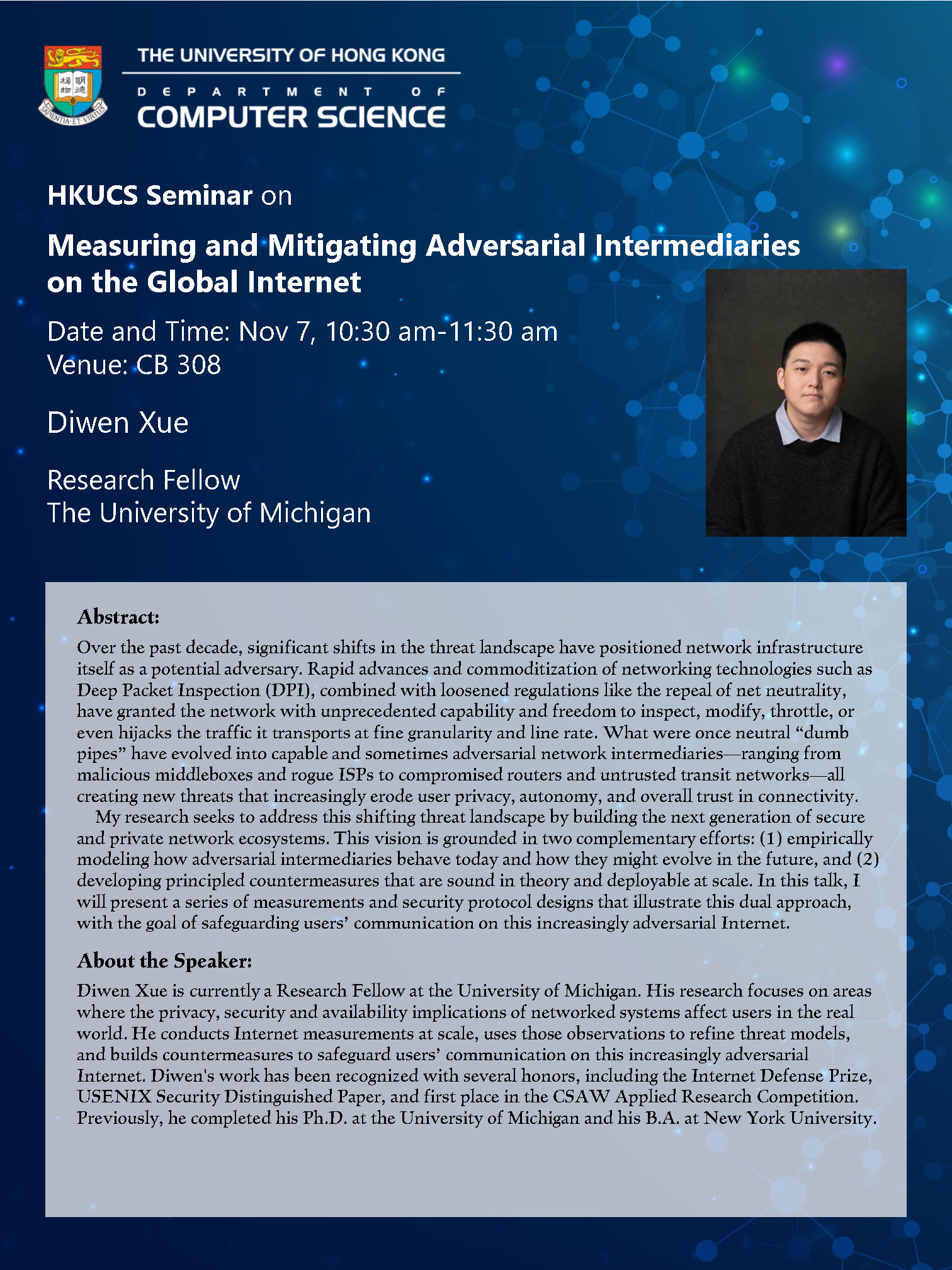Abstract
Over the past decade, significant shifts in the threat landscape have positioned network infrastructure itself as a potential adversary. Rapid advances and commoditization of networking technologies such as Deep Packet Inspection (DPI), combined with loosened regulations like the repeal of net neutrality, have granted the network with unprecedented capability and freedom to inspect, modify, throttle, or even hijacks the traffic it transports at fine granularity and line rate. What were once neutral “dumb pipes” have evolved into capable and sometimes adversarial network intermediaries—ranging from malicious middleboxes and rogue ISPs to compromised routers and untrusted transit networks—all creating new threats that increasingly erode user privacy, autonomy, and overall trust in connectivity.
My research seeks to address this shifting threat landscape by building the next generation of secure and private network ecosystems. This vision is grounded in two complementary efforts: (1) empirically modeling how adversarial intermediaries behave today and how they might evolve in the future, and (2) developing principled countermeasures that are sound in theory and deployable at scale. In this talk, I will present a series of measurements and security protocol designs that illustrate this dual approach, with the goal of safeguarding users’ communication on this increasingly adversarial Internet.
About the speaker
Diwen Xue is currently a Research Fellow at the University of Michigan. His research focuses on areas where the privacy, security and availability implications of networked systems affect users in the real world. He conducts Internet measurements at scale, uses those observations to refine threat models, and builds countermeasures to safeguard users’ communication on this increasingly adversarial Internet. Diwen's work has been recognized with several honors, including the Internet Defense Prize, USENIX Security Distinguished Paper, and first place in the CSAW Applied Research Competition. Previously, he completed his Ph.D. at the University of Michigan and his B.A. at New York University.

